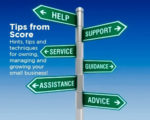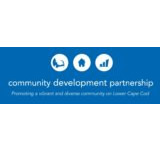Future Business Plan
 Question: Although we haven’t reached Labor Day, I am beginning to think about my next year’s business plan. Any suggestions?
Question: Although we haven’t reached Labor Day, I am beginning to think about my next year’s business plan. Any suggestions?
Answer: Jackie Nagel, Synnovatia, (www.synnovatia.com) suggests, “think clearly, act boldly and achieve calmly.” As Winston Churchill once said, “those that fail to plan, plan to fail.” She suggests that you undertake a year-end assessment of where your business is, in regards to where you want it to be, taking into consideration where you have been and what you achieved during the past year. To do this, you have to carve out time to think and then plan. Without taking the time to think through where you are and where you want to go, you have just murkiness of the brain and blurred vision of how to get to your goal.
Your Assessment tool might look like this:
Revenue & Profitability:
(1) What was your revenue and profit?
(2) How does it compare to your projections and the past year?
(3) If you were leaking cash, do you know where?
(4) Did your pricing strategy hold up all year?
(5) What was your average revenue per client? Is it up down?
Sales:
(1) What marketing methods did you use to generate sales?
(2) What metrics did you employ to determine which tools worked?
(3) What marketing methods should be eliminated due to their ineffectiveness?
(4) What is your conversion rate: leads to consummated sales?
(5) What is the average lead time for the lead generation to a closed sale?
Client acquisition:
(1) How many new clients were acquired this year?
(2) What is your gain/loss of clients?,
(3) What is your average length of client engagement?,
(4) What type of client(s) is most profitable for your business?
(5) What type of client has the highest potential for growth?
(6) Which clients are most enjoyable which with you work?
Products and Services:
(1) What products and services are most profitable for your business?
(2) Which products and services are the least profitable for your business?
(3) Which 20% of your activities represent 80% of your revenue goal?
(4) Which product and service have the highest growth potential?
(5) What new product and service would meet the ever changing needs of your clients?
Small Business Ownership:
(1) What accomplishments are you most proud of this year?
(2) What is your greatest learning? How will it be applied to the coming year?
(3) What is working well and producing positive results? (4) What makes your business most enjoyable?
(5) What is fostering your personal, professional or company’s growth, profitability, and effectiveness?
Business Goals and Plans for the coming year:
(1) What modification to your vision, mission objectives or strategies would you make to achieve your next year’s goals?
(2) What elements of your business are your critical success factors, i.e., what factors are critical to your business’ success?
(3) What internal and external opportunities exist? How can you capitalize on them?
(4) If you knew you couldn’t fail, what would you achieve?
(5) Where is the greatest undeveloped potential in your business?
(6) What are your goals for the next year?
(7) What actions and resources are needed to achieve your goals?
(8) How will you measure your progress against your goals?
(9) How often will you measure your progress?
(10) What will you do to achieve your goals?
Use the SMART objective setting method:
S – Specific goals with enough detail that it can be well understood by you and your team over time.
M – Measurable how will you know if the goals have been accomplished if you don’t have a metric to assess progress.
A – Attainable tough objectives are OK, but they must be attainable otherwise no one on your team will take them seriously.
R – Relevant – All goals and objectives need to be in alignment with your organization’s mission.
T – Timely – Does the goal have a target date for completion?
Personal Goals for the Year in Owning and Managing a Small Business on the Cape
Be a lifelong learner by continuing to develop the skills needed to effectively and efficiently manage and grow your business. Attend workshops (local Chambers of Commerce Short Courses and the 6 Week SCORE Small Business Management Workshop)
Network with other small business owners through business roundtables, networking groups such as BMI. Join your local Chamber of Commerce and take advantage of learning (workshops) and networking (Before or After Hours events). Or join a Meetup (Cape Cod Small Business Owners: Growing by Connecting)
Collaborate with other small businesses in your area to learn from one another what works and what doesn’t in owning and growing a small business.
Plan for “me-time” so you can recharge your batteries periodically.
Review your personal goals and objectives vs. your business goals and objectives to assure they remain in alignment.
Decide what personal goal you want to achieve in the coming year and generate a plan that you review periodically to assure that you are on track.











